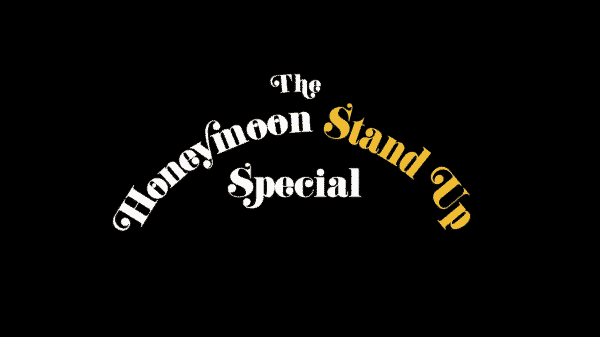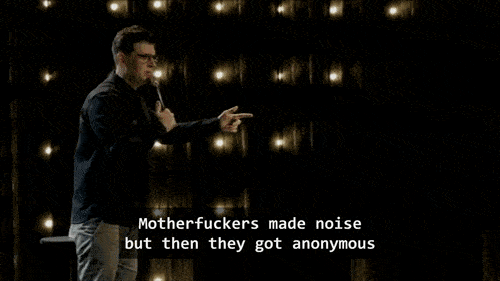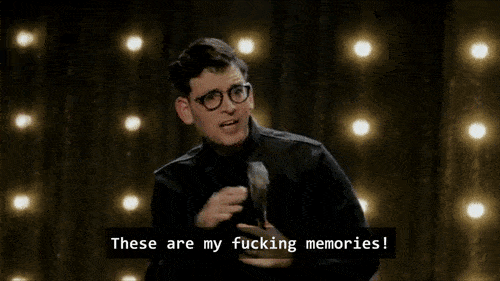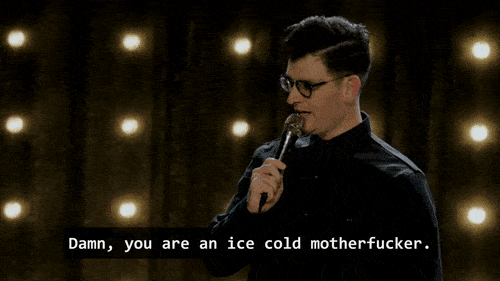The Honeymoon Stand Up Special: Part 2 (Moshe Kasher) – Recap/ Review (with Spoilers)
Moshe’s part of the shared comedy special is stronger, though makes you slightly question if it is just because of his opening act. Director(s) Jay Karas Screenplay By Moshe Kasher Date Released 4/17/2018 Genre(s) Comedy Special Noted Actors Himself Moshe Kasher Summary Oh, Moshe. Raised in a single parent home with a radical, deaf, feminist…

Spoiler Alert: This summary and review contains spoilers.
Additionally, some images and text may include affiliate links, meaning we may earn a commission or receive products if you make a purchase.
Moshe’s part of the shared comedy special is stronger, though makes you slightly question if it is just because of his opening act.
| Director(s) | Jay Karas | |
| Screenplay By | Moshe Kasher | |
| Date Released | 4/17/2018 | |
| Genre(s) | Comedy Special | |
| Noted Actors | ||
| Himself | Moshe Kasher | |
Summary
Oh, Moshe. Raised in a single parent home with a radical, deaf, feminist mom – while also being a poor Jew. There is a lot going on here for material. There are deaf jokes, his mom taking him to a pro-choice rally at three, gentrification, since he grew up in Oakland poor and now looks like the hipsters taking it over. I mean, he could do a whole set, meaning an hour long one, with barely touching his adulthood probably.
But, luckily he does and in that, he talks about the fears of becoming a parent, because of the blueprint his mom gave him. On top of that, fears of infertility and dealing with people asking, “Are you trying?” Leading to, in comparison to Natasha, there being less shock and more story and trying to present a build to the punch line. Ultimately, making you believe that Moshe is less about shock value and more about maintaining your attention past the punch line.
Collected Quote(s) or .Gifs
 Highlights
Highlights
A Comic With A Diverse Background
 What, arguably, the best comedians do is bring about new perspectives. Something that isn’t an overdone topic, like Trump jokes. A perspective which, because of gender, ethnicity, sexuality, and how they were brought up, their take is something different from the norm. Having a progressive, radical feminist mom who is also deaf, that put Moshe in a unique position. Add in he grew up a poor Jew, on Welfare, in Oakland, California and you can see how he existed within the intersection of many different cultures and ideas.
What, arguably, the best comedians do is bring about new perspectives. Something that isn’t an overdone topic, like Trump jokes. A perspective which, because of gender, ethnicity, sexuality, and how they were brought up, their take is something different from the norm. Having a progressive, radical feminist mom who is also deaf, that put Moshe in a unique position. Add in he grew up a poor Jew, on Welfare, in Oakland, California and you can see how he existed within the intersection of many different cultures and ideas.
All of which, even at the age of 38, it seems he is still trying to process. And as he walks you through his understanding of things, or perhaps his misunderstanding, depending on the topic, you get a comic who presents both the idea he is trying to deliver jokes while trying to open your mind a bit. Like to the idea that deaf people aren’t feeble and can be as active and wild as you. Alongside that, that old people, as sweet as they are, don’t forget they once had sex, probably still enjoy sex, and are getting a whole lot of STDs in nursing homes.
Okay, the STD part wasn’t said, but you get the idea. Which, in the long run, whether talking about sex, welfare, feminism, having kids, and defining someone’s sexuality, he fully presents his ideas while also exhibiting the idea that he knows where the line is and will observe it.
Overall: Positive (Watch This)
In a way, Moshe greatly benefits from Natasha going on stage first. For with Natasha raunchy and shock value jokes, she presents an extreme. So when Moshe, a more moderate comedian who doesn’t rely on shock value does his set, he seems heaven sent in comparison. Leading you almost to see Natasha as his opening act rather than his co-headliner.
Leading to why the positive label: Part 2 of this special not only pushes the idea Kasher is Leggero’s better half, but also a more well-rounded performer. It makes it seem that this will probably benefit him more than her and that, in the future, he probably won’t need to name drop who he is married to in order to get a full hour set. He is the Beyoncé to her Jay-Z in this situation. They’d come for him and, based off part 1 & 2, while I recognize she definitely has fans, I feel the vast majority would just see her as someone they have to sit through until he comes on.




